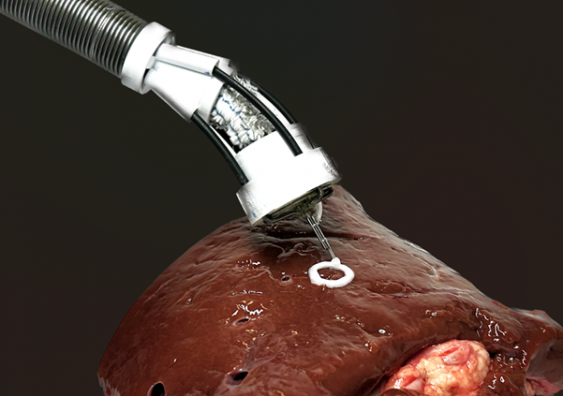Novel robotic system can 3D print cells onto organs inside the body
Date: 3.3.2023
Engineers from UNSW have developed a miniature, flexible soft robotic arm that can be inserted into the body like an endoscope and deliver biomaterials directly onto the surface of organs and tissues.
 The proof-of-concept device, called F3DB, is externally controlled and comprises a long, flexible robotic arm, at the end of which sits a highly maneuverable swivel head that "prints" the bioink through a miniature, multidirectional nozzle.
The proof-of-concept device, called F3DB, is externally controlled and comprises a long, flexible robotic arm, at the end of which sits a highly maneuverable swivel head that "prints" the bioink through a miniature, multidirectional nozzle.
“Existing 3D bioprinting techniques require biomaterials to be made outside the body and implanting that into a person would usually require large open-field surgery which increases infection risks,” said Dr Thanh Ngo Do, corresponding author of the study.
“Our flexible 3D bioprinter means biomaterials can be directly delivered into the target tissue or organs with a minimally invasive approach,” Do said. “Our prototype is able to 3D print multilayered biomaterials and different sizes and shapes through confined and hard-to-reach areas, thanks to its flexible body.”
The engineers tested the F3DB outside the body on flat and curved surfaces, including inside an artificial colon and on the surface of a pig’s kidney, using chocolate, composite gel, and biomaterials to accurately print different shapes.
Image source: Thanh Do / University of New South Wales.























